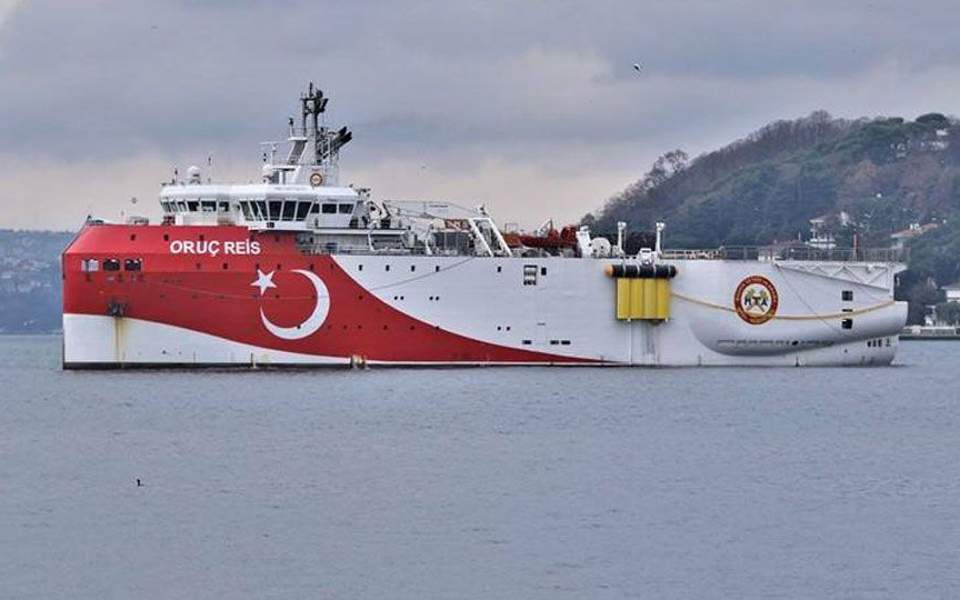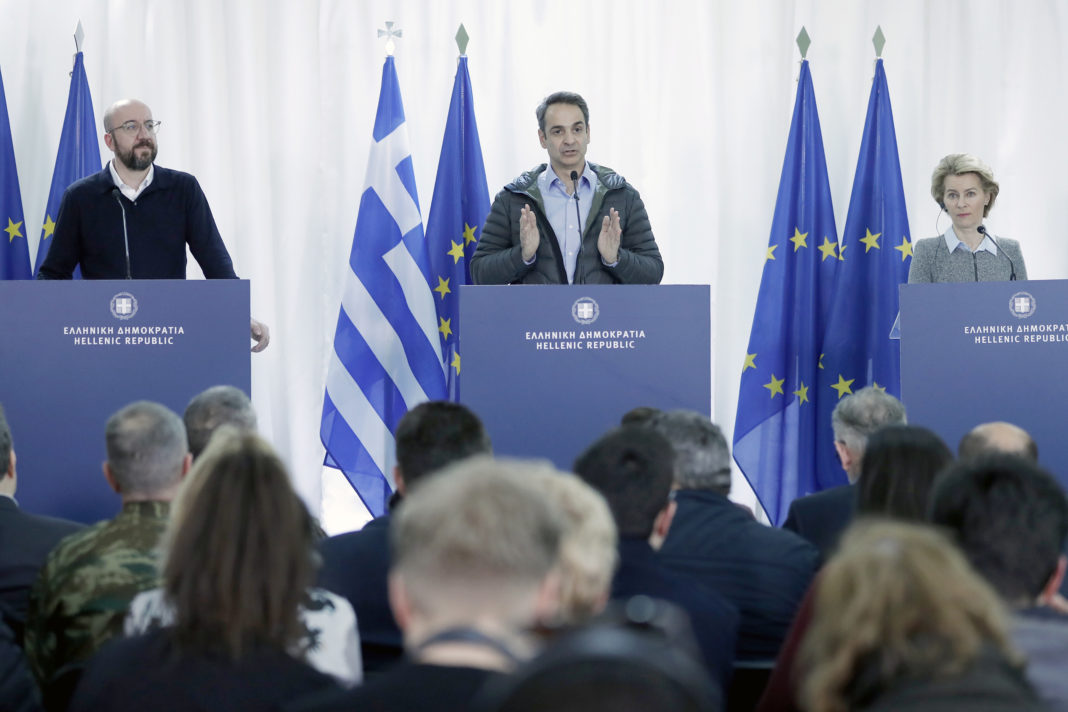Greece said Wednesday that it still expects the European Union to approve sanctions against Turkey despite the two NATO members agreeing to restart talks on maritime boundaries, energy rights and other long-standing disputes.
The leaders of the EU’s 27 nations are expected to review proposals for imposing sanctions on Turkey at their next summit, which was originally scheduled for this week but has been postponed until Oct. 1-2. Greece is an EU member, but not Turkey.
Greek government spokesman Stelios Petsas said he expects the national leaders to adopt some proposals, but he told state-run ERT television: “The question is how those sanctions will be activated in the case of Turkey’s non-compliance, because we are not used to seeing the (EU) operating on a very fast track.”

Greece and Turkey engaged in a tense military standoff in the eastern Mediterranean Sea earlier this month after Ankara dispatched a warship-escorted research vessel to survey for potential undersea gas and oil deposits in an area over which the Greek government insists it has sole jurisdiction.
Both countries pulled back and agreed to engage in exploratory discussions after the Turkish ship returned to port, although Turkish President Recep Tayyip Erdoğan said the move was only temporary.
READ MORE: Turkey, Greece agree to resume talks after four years.
In a telephone call with EU Commission President, Ursula von der Leyen, on Wednesday, Erdogan affirmed his government’s readiness to resume talks with Greece, and his support for a negotiated end to the dispute.
According to a statement from Erdogan’s office, he also expressed hope that “Greece would not waste this opportunity afforded to diplomacy as it did previously.”
Turkey was angered after Greece signed a maritime boundary agreement with Egypt in the summer while Turkish and Greek delegations were holding talks to de-escalate tensions.

The issue has been complicated by a related spat between Turkey and war-divided Cyprus. The east Mediterranean island nation insists that the EU slaps sanctions on Turkey for continuing “unlawful” prospecting in waters where it claims exclusive economic rights.
Cyprus is holding up EU sanctions against Belarus officials suspected of election fraud or being involved in a security crackdown until the bloc honors a deal that EU foreign ministers struck last month on imposing similar measures on Turkey.
Cyprus Foreign Minister, Nikos Christodoulides, said his government would support even tougher sanctions against Belarus officials. But he said it makes no sense to delay sanctions against Turkey when it continues to violate an EU member’s sovereign rights.
Turkey doesn’t recognise Cyprus as a state and says it’s within its rights to prospect in waters that it claims lie over its continental shelf.
Meanwhile, a Cypriot government statement said Von der Leyen told President Nikos Anastasiades in a telephone call on Wednesday that the EU would be “forced to take measures” if Turkey doesn’t end its “illegal actions” and if “there is no de-escalation of tensions.”

Formal negotiations between Turkey and Greece were suspended four years ago. No date has been set for the exploratory talks planned to take place in Istanbul. Germany, which currently holds the EU’s rotating presidency, led intense diplomatic efforts to end the dispute.
“From our point of view, it is, of course, important that these talks begin soon and further confidence is built up,” Steffen Seibert, a spokesman for German Chancellor Angela Merkel, told reporters in Berlin on Wednesday.
Greece and Turkey have been holding separate, military-level talks at NATO aimed at preventing an armed confrontation between the two allies in the eastern Mediterranean.
NATO Secretary-General Jens Stoltenberg said “good progress” had been made in Brussels.
“These are technical military talks. They complement the diplomatic efforts led by Germany to resolve the underlying dispute,” Stoltenberg said. “The German efforts have led to an agreement yesterday to hold exploratory talks, which I welcome.”
Source: AP News.
